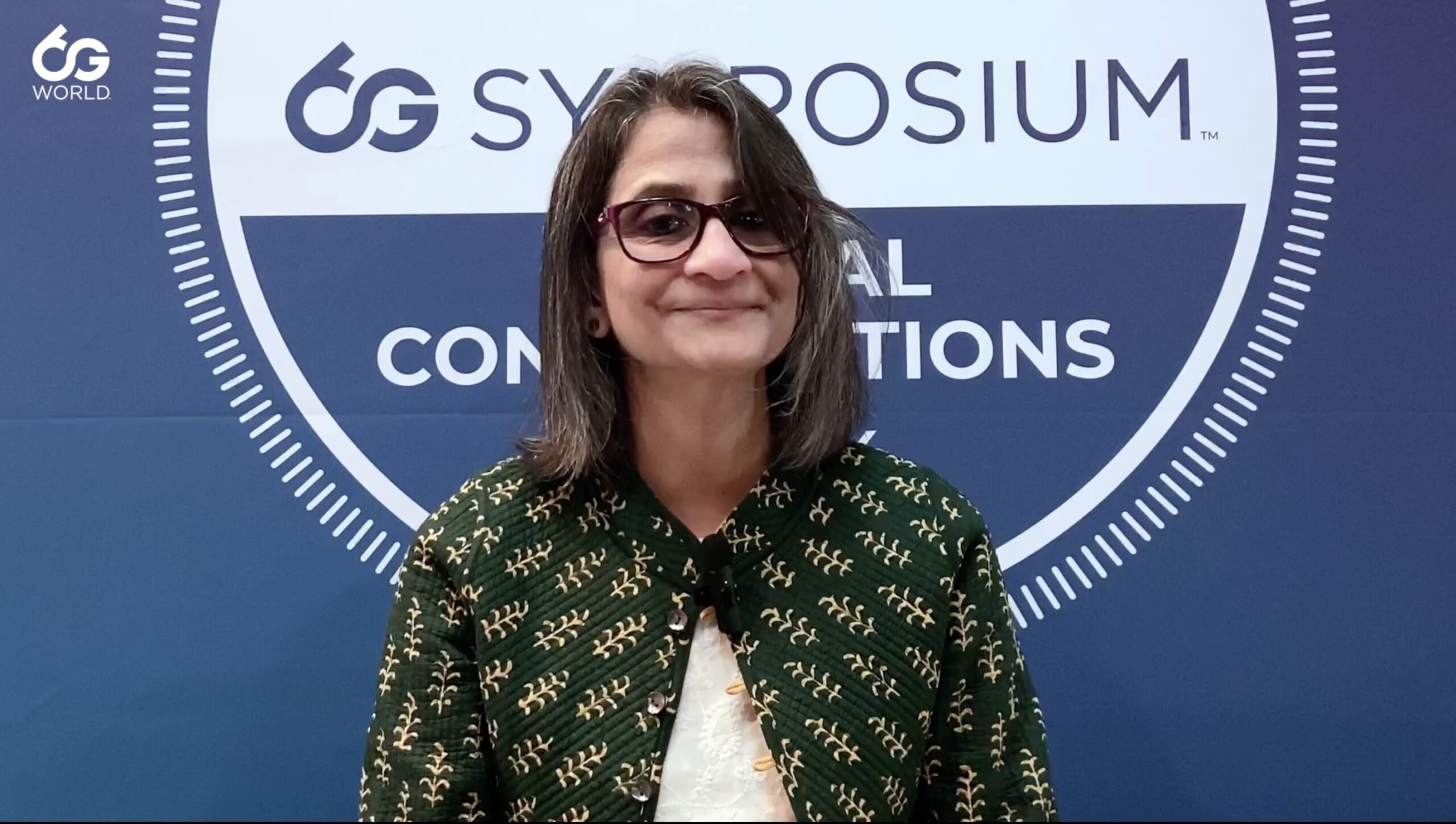During the last 6GSymposium Spring 2024, 6GWorld had the chance to catch up with Monisha Ghosh and ask her comments about 6G and spectrum.
Ghosh is a professor in the Electrical Engineering Department at the University of Notre Dame and Policy Outreach Director for SpectrumX. She has also served as CTO of the FCC.
In this quick chat, she addressed topics such as spectrum sharing, Terahertz, and AI. Watch the video or read the transcription below:
Transcription:
My name is Monisha Ghosh. I’m a professor in the Electrical Engineering Department at the University of Notre Dame. I’m also the Policy Outreach Director for SpectrumX, the National Science Foundation’s first spectrum innovation institute.
Prediction #1: 6G can’t work without spectrum sharing
I absolutely agree that spectrum sharing has to be what I call native to the way we design 6G. The reason is that if you look at the new spectrum that is being considered for future G systems, for example 78 gigahertz, there are so many incumbents in those frequencies that sharing will be absolutely essential.
Prediction #2: 6G spectrum sharing will focus on the 7 to 15 GH range
That is definitely one of the main ranges that 6G and spectrum sharing for 6G will focus on, but I don’t think that may be the only one. There are other bands, at least in the U.S., like the lower 3 gigahertz, which are being considered for 5G today and maybe future 6G, which will also require sharing options.
Prediction #3: Spectrum sharing will be easy to do with AI
I don’t think spectrum sharing is ever easy. Definitely AI may help in terms of predicting interference, making our propagation models easier, but no, I don’t think it’s going to be easy.
Prediction #4: We won’t use Terahertz in 6G
I think it’s going to be hard to say either way. I think Terahertz will have a place in future networks, but I view Terahertz being used more as a backhaul technology than as an access technology in the true sense of a mobile wireless network.







